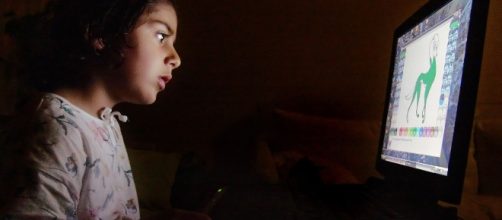On March 21st, the Select Committee on Communication of UK Parliament published a report on the Growing up with the internet. The aim is to understand how the new technology could affect the education of the children. Among the warnings, two aspects deserve a particular attention in the following years according to the Committee, which calls for additional studies on these: first of all the internet of things and the Artificial intelligence (AI), then the pornography.
AI and Data ethic
In fact, AI and internet of things have been already investigated by another report initiated by the House of Commons' Science Technology Committee and published in October 2016.
The query was how to prepare the future in a world completely modified by the new technologies.
Sure enough, a big quantity of data related to the life of people is available to private companies, which could use them in controversial ways, above all if they involve children. So whilst the US government is focused on avoiding to hinder the development of AI technologies, "allowing a thousand of flower to bloom", UK and EU are more interested in safeguard the data, both speaking of a third subject (an agency for the EU, a commission for the UK to control the use (and to prevent the abuse) of private company managing personal information.
The visions of different governments are deeply analysed in a paper by the Oxford professor Luciano Floridi and some colleagues: "Artificial intelligence and the 'good society': the US, EU, and UK approach".
In fact, Mr Floridi focuses his attention on two aspects: private data and human dignity. The danger of a new world (where everything is controlled by cyber devices) is acquiring something in knowledge but losing something in education. The two sides are connected.
Pornography and love
Indeed, a deeper modification is slowly changing our society with the internet, the Jerusalem Hebrew University sociologist Eva Illouz seems to hint. Speaking about the construction of human relations, Mrs Illouz noticed that we are moving from a retrospective imagination, created by past images and interactions, to an anticipatory imagination, created by virtual images and data we haven't yet experimented.
Pornography is only a part of this new way of relation with the world: the internet is shaping our imagination with a new different cognitive and linguistic contact.
For this reason, the internet could be a dangerous way of knowing if not supported by contact in real life. Apparently, something is changing, guessed Mrs Illouz. She quoted a 2011 contest by "The New York Times", according to which college students in three years have transformed their criteria of research dating online: before most of them were looking for physical relation without emotion, then they were looking for emotional relation, less interested in the physical aspect.
The naked future
In the next years, we could witnesses to an undertow of the internet as a medium to solve all our problems in the reality. The revolution of the Second life, which some years ago would have been considered a big switch, is now less contemplated, even in academic studies.
Of course, the net should remain a medium to put into contact people, however not to substitute the real contact.
Yet, the data we share with our personal devices should show up another problem. It is denounced by Patrick Tucker in his book "The Naked Future" (2014): we can become more foreseeable and other people could predict what we are going to do in every moment. The forthcoming question is if we should know what are the choices of our children before they'll take them.

